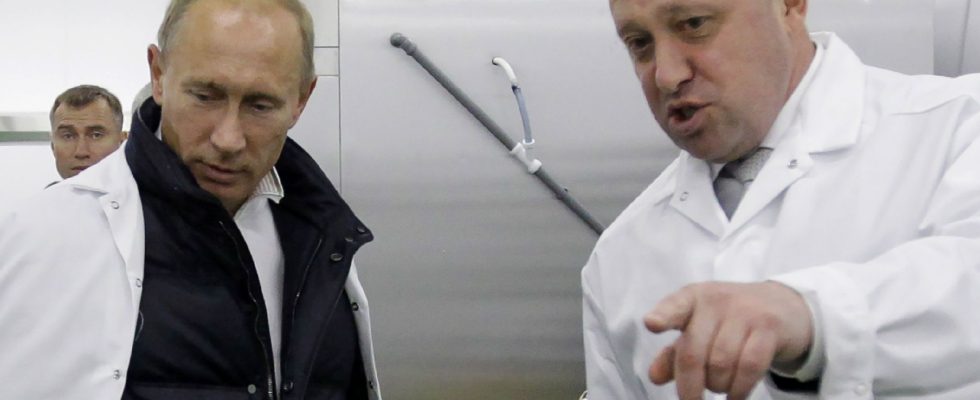Yevgeny Prigozhin, the ruthless leader of the Wagner mercenary group, was reportedly killed in a plane crash, an event that many interpret as an assassination. Prigozhin probably knew to stay away from the windows of tall buildings. It therefore seems plausible that Vladimir Putin shot him down at an altitude of 8,000 meters.
Putschists rarely die of old age. Prigozhin sealed his fate in June when he launched a mutiny against Putin, which fizzled out hours after it began. No dictator can afford to tolerate this kind of disloyalty: every second experienced by Prigozhin made Putin look weaker, a dictator apparently forced to put up with a man who had directly challenged him, simply because Russia had need of the Wagner group for its disastrous war of attrition in Ukraine.
Putin probably knew that by letting Prigozhin live he risked emboldening his internal enemies and inciting them to foment new threats. In an interview earlier this year, Putin said leaders must be able to forgive, but not everything is forgivable. When the interviewer asked him what could not be forgiven, his response was immediate: “Betrayal.”
Classic mistake of dictators
This is how Prigozhin presumably crashed his private plane. The Kremlin could have easily imagined a less ostentatious display, more likely to fool foreign observers into believing that Prigozhin had died of natural causes. But dictators generally don’t want plausible deniability. When they use lethal force against their enemies, they want everyone to know about it – a warning shot for other would-be plotters. This is why Russia’s enemies abroad have been killed with highly controlled radioactive substances, which point directly at the Kremlin. If you want to send a message, make sure everyone knows who sent it.
Prigozhin’s death, if confirmed, is most likely Putin’s calculated way to try to reassert his strength. But, if so, Putin has made the classic mistake of all dictators: wrongly confusing force with ruthless violence. Real strength – and lasting power – comes from regimes that resist. Rather, the likely death of Yevgeny Prigojine reveals a fragile dictatorship, with cracks and divisions that will continue to widen over time.
It is almost certain that these events will have unintended consequences, because Putin falls even further into what I call “the dictator trap”: in authoritarian regimes, anyone who aims to consolidate power almost always ends up weakening it. . Short-term shows of brute force are a guarantee of long-term weakness. In the immediate term, loyalists will fear Putin more and understand that betrayal has a price. But, in the medium and long term, two new threats are likely to emerge.
First of all, the main loyalists of the Russian regime will rightly wonder if they will not be next in line. When dictators start killing high-ranking regime members, even those who have directly challenged the dictator’s authority, paranoia sets in and mounts. Who could blame members of Putin’s inner circle for worrying after all the “mysterious” deaths in the past two decades of his reign of terror? Some might wonder if they wouldn’t be better off living in a Russia without Putin, as long as they can define the terms. If regime members fear for their own safety, a palace coup becomes more likely. So getting rid of Prigozhin only shifts and delays the threat. Every dictator ends up knowing his end.
frightened puppets
Second, the quality of Putin’s reporting will deteriorate dramatically, which could lead him to make avoidable mistakes because he is not being told the “true truths”. That pipe was probably already compromised after two decades of brutal rule, during which Putin, like all dictators, eliminated honest advisers who bothered him and promoted slavish lackeys who told him what he wanted to hear. Many advisers learn that the best survival strategy when working for a ruthless autocrat is to be a puppet. Putin, in one of the biggest blunders in modern history, listened to these puppets who told him he would take over kyiv in days. This business blew up in his face.
But, when a dictator assassinates a high official and not only journalists, opposition candidates or dissidents, fear runs rampant. Trusted advisors, who used to speak honestly but cautiously, start biting their tongues or providing overly optimistic assessments, creating a vicious circle of bad information and bad decisions. Over time, catastrophic miscalculations become more likely, and eventually one of them triggers the end of the diet.
This is not to say that Putin’s murderous regime is dying today. But, once the long-term costs of this apparent assassination are taken into account, Yevgeny Prigojine may well have the last word, from beyond the grave.
* Brian Klaas is Associate Professor of Global Politics at University College London. This article appeared in its original version in The Atlantic. ©2023 The Atlantic. Distributed by Tribune Content Agency.
